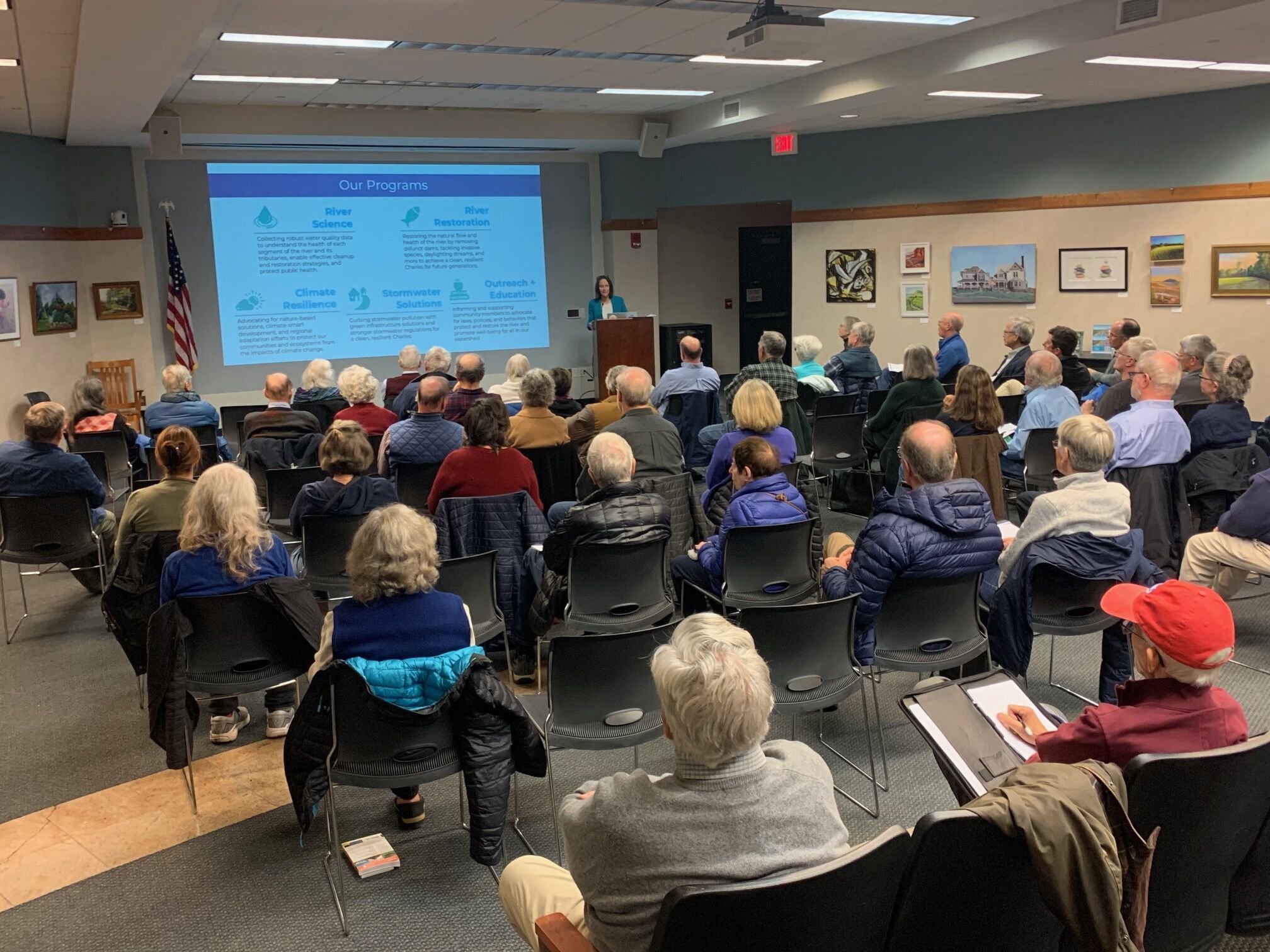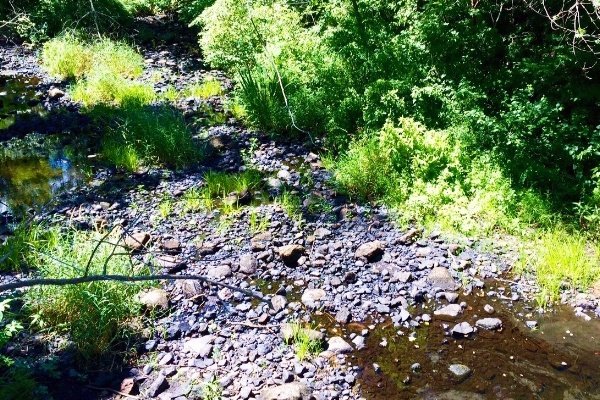CLIMATE RESILIENCE
Adapting to a changing climate.
CRWA is helping communities prepare for climate impacts.
Increasing precipitation and flooding, extreme weather, drought, heat – climate change is already impacting our communities, and the effects will only grow more severe as our planet warms.
By advocating for nature-based solutions, climate-smart policies, and regional adaptation actions, CRWA is working to protect our communities and ecosystems from the impacts of climate change.
What we’re doing:
-

Charles River Flood Model
CRWA’s watershed-scale simulation, developed with twenty cities & towns to show how increased precipitation and inland flooding will affect our communities and test out mitigation solutions.
-
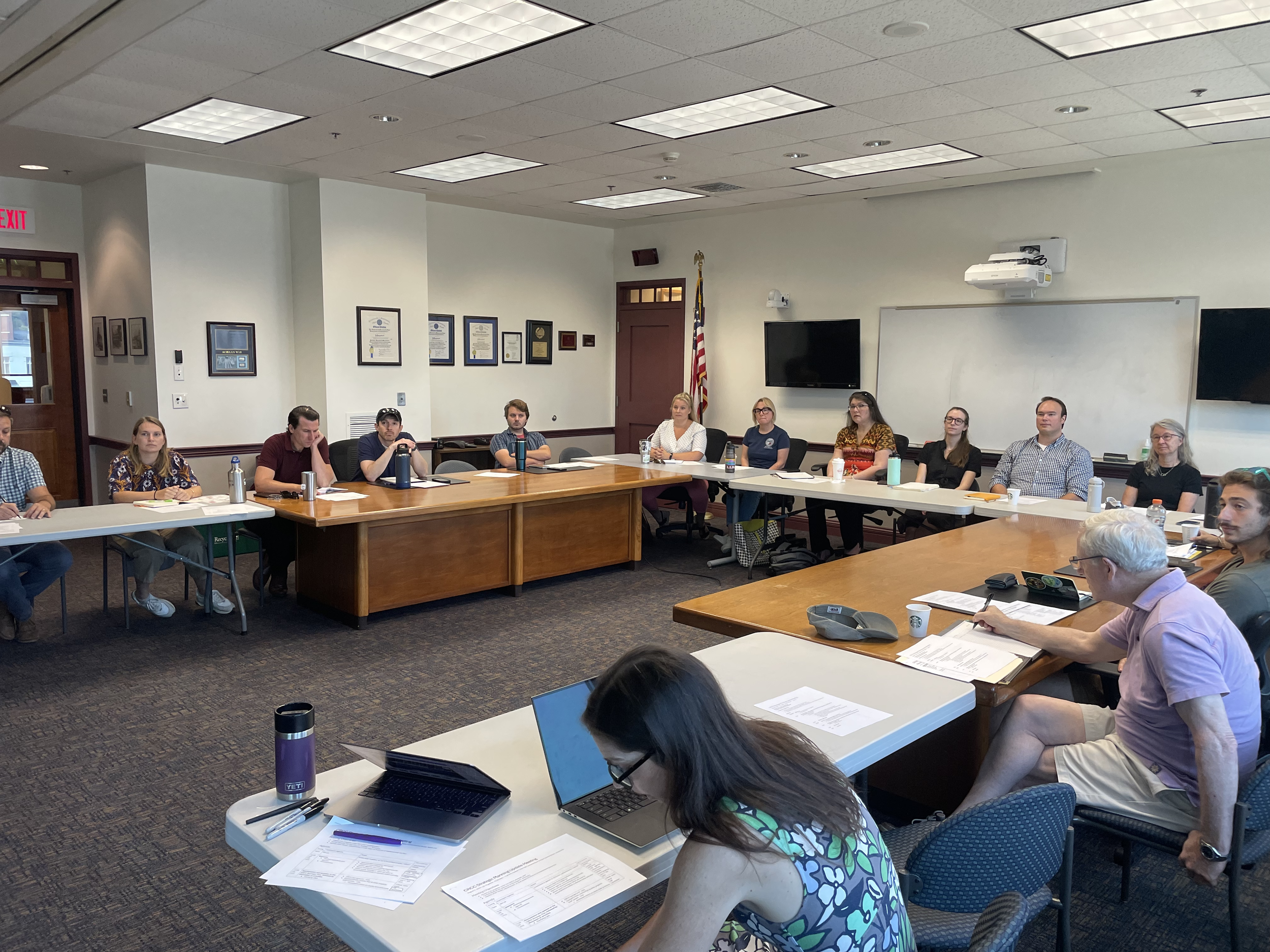
Charles River Climate Compact
The Charles River Climate Compact is a voluntary partnership of 28 watershed communities that takes a regional approach to climate adaptation and mitigation to address precipitation-based flooding, sea level rise, extreme heat, and ecosystem health through collaboration and information sharing.
-
Resilient Boston
Coastal cities like Boston are especially vulnerable to climate impacts – CRWA is rising to the challenge by advocating for nature-based solutions to build climate resilience in an equitable, sustainable manner in Boston to protect our most vulnerable communities from the impacts of flooding, drought, extreme heat, and extreme weather.
-
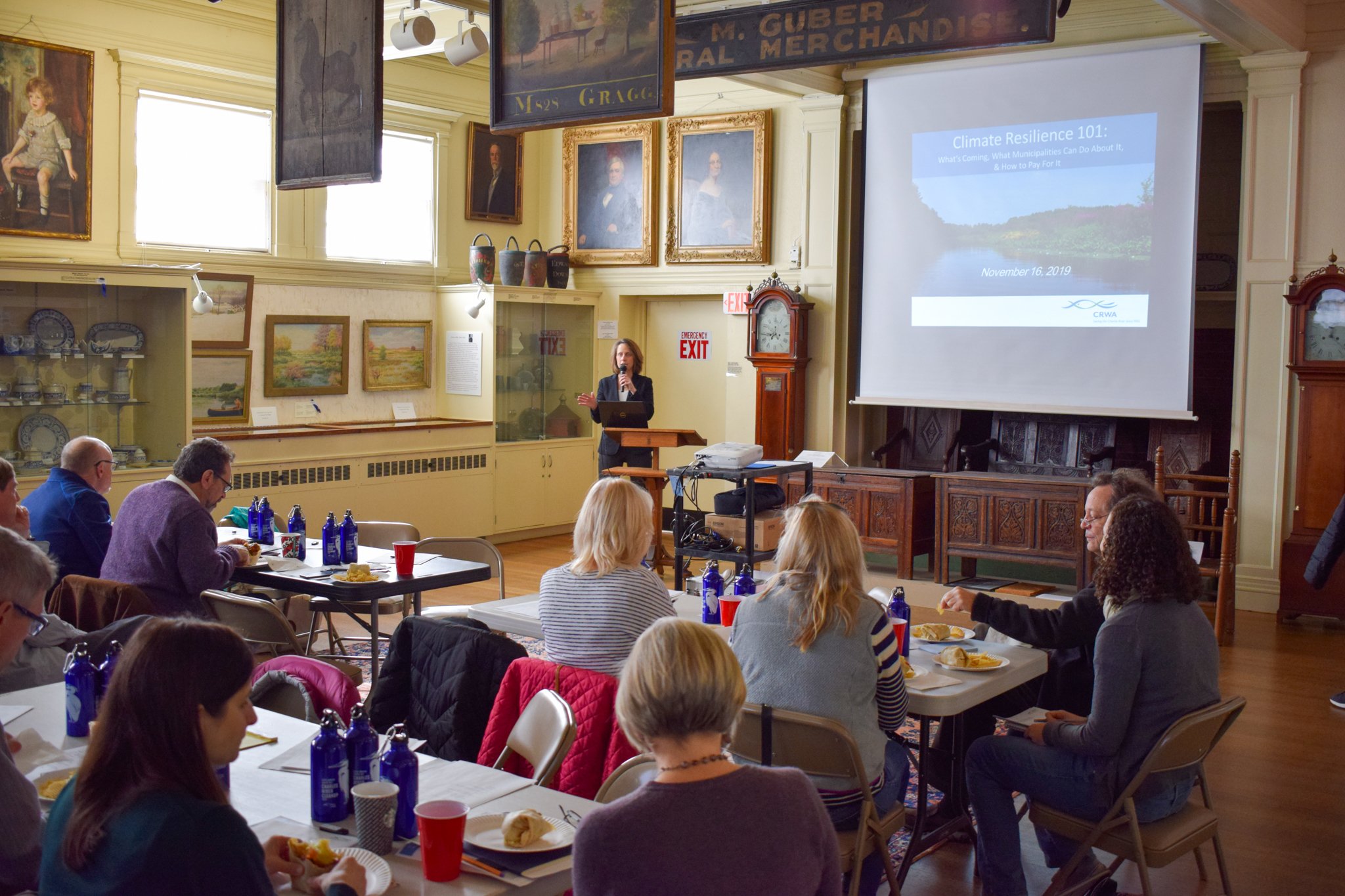
Climate Resilience 101
Local governments are often not yet prepared to respond to the climate crisis with the urgency it necessitates. CRWA is educating local elected officials on how to build climate resilience with nature-based solutions, building legislative support for resilience initiatives, and accelerating climate adaptation in our watershed as a whole.
-
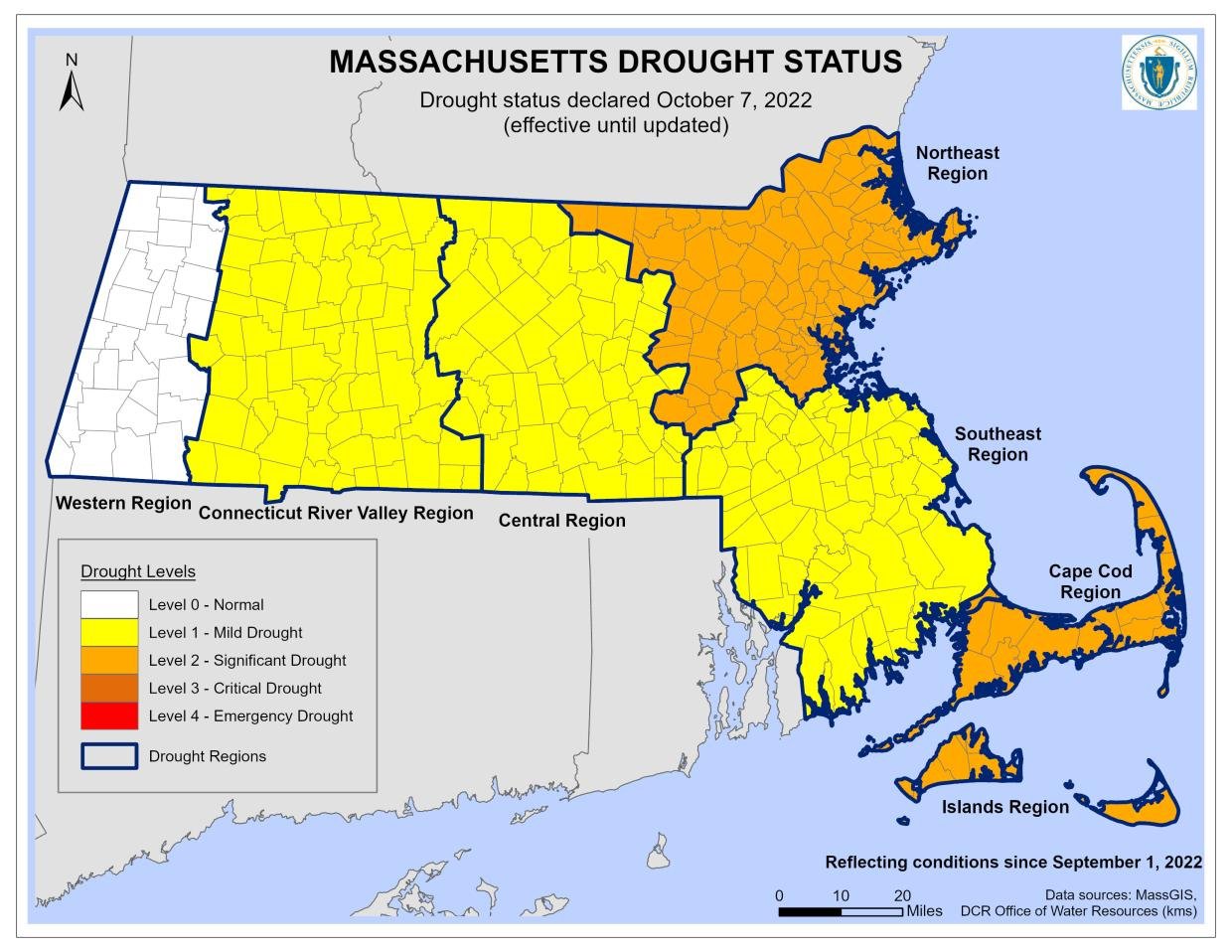
Drought
CRWA closely tracks the impacts of drought on our watershed, advocating for more effective water and drought management and educating the community on water conservation.
-

Heat
CRWA is building community resilience to extreme heat by advocating for increased tree canopy and open space, building green infrastructure, researching heat impacts on a watershed scale, and sharing resources and information on how to stay cool.



